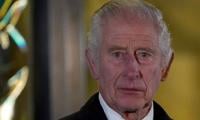ISLAMABAD: The Information and Broadcasting Minister Shibli Faraz on Saturday said the government had no choice but to take legislative and other steps to curb money laundering and terrorist financing.
Speaking at a news conference here along with Special Assistant on Accountability Shahzad Akbar, Shibli said the FATF-related legislation was introduced as the past rulers were involved in money laundering and they did not enact any legislation to stop it. “We were on the FATF gray list for a long time, and during their (opposition) governments, Pakistan had only two choices: to either get out of the gray list or be included in the blacklist. We had to decide which one was better for the interest of the country. The opposition, on the other hand, was fixated over what was important to their leaders,” he said.
Shibli criticised the opposition's All Parties Conference (APC) saying a person (Nawaz Sharif), who was guilty and had left the country under the pretext of illness, will address the APC from London. He said, "I have heard that Nawaz Sharif will address the conference via video link. When he has to appear before the court, he claims to be sick and now all of a sudden he is fit for politics. Nawaz should not consider people as fools.” The federal minister said the APC would be a gathering of "accused and losers" aiming to spread chaos in the country. He said the opposition would sit together and decide how to spread insecurity and confusion in the country, not spreading hope, which could lead to a serious problem in the country.
Speaking next, Shahzad Akbar said the FATF legislation needed clauses to contain financial corruption and money laundering. He said it is also important to understand the review process of FATF, as it was not a single body but has experts from the United Nations and other countries to vet the laws’. The special assistant said special reforms were sought by the FATF in various laws including trust and Waqf to check terrorist financing. “We have a FATF Secretariat in which all the institutions and stakeholders are represented,” he added. He said there was a serious danger of Pakistan slipping into the blacklist and therefore it was the duty of a responsible government to get Pakistan out of the gray list and back to the white list.
Akbar said when the bill was drafted in the light of recommendations and negotiations were started with the opposition, the opposition asked what would they get in return for the whole package. He said the opposition demanded 34 amendments to be made into 38 sections of the NAB law, but due to public pressure, their demand fizzled out.
Shahzad Akbar said in the end, the opposition dug their heels in on the anti-money laundering bill that was first enacted in 2007 in the form of an ordinance. “When it was reviewed, many shortcomings were identified and it was decided that the lacunae would be removed since fake accounts came to light due to the shortcomings in the law. “Keeping this in mind, the government prepared a draft and shared that with the opposition. During these negotiations, they demanded clearing Shahbaz Sharif and his family of the TT cases, immediate closure of fake accounts cases against Asif Ali Zardari and his followers as well as the closure of the cases against Shahid Khaqan Abbasi,” Shahzad Akbar claimed.
He said the opposition’s first objection was that the government wanted to arrest people and put them in jail for six months. The adviser said when he looked at the draft, he found it was the opposition's bill that had invoked the power to arrest. Next, the opposition tried to stir a controversy over the vote count during the joint session of the parliament, while acknowledging that many of its members had not attended the joint session. He asked how could the vote-counting go wrong in this age of live camera.
He said the opposition call themselves stakeholders even though some of them are accused in NAB references. “If it is so, then we should go to jails and negotiate with all the killers regarding the murder laws. The parliament, the judiciary may be stakeholders, but the MPs who are accused, should not be among the stakeholders,” he added.
Kasuri urged authorities of Pakistan and China to pull their resources to defeat forces seeking to disrupt the...
IHC said that several people had not returned the cipher copies they had, and asked if it meant it was right for the...
Gilani gave floor to Leader of Opposition Syed Shibli Faraz, who insisted that with unity they could take country...
Match witnessed intense action and dramatic twists, keeping fans on the edge of their seats until the final ball
Apex court bench was reconstituted after Justice Yahya Afridi recused himself from hearing the case earlier this month
ECP issued a notification in this connection pursuant to orders passed by LHC







